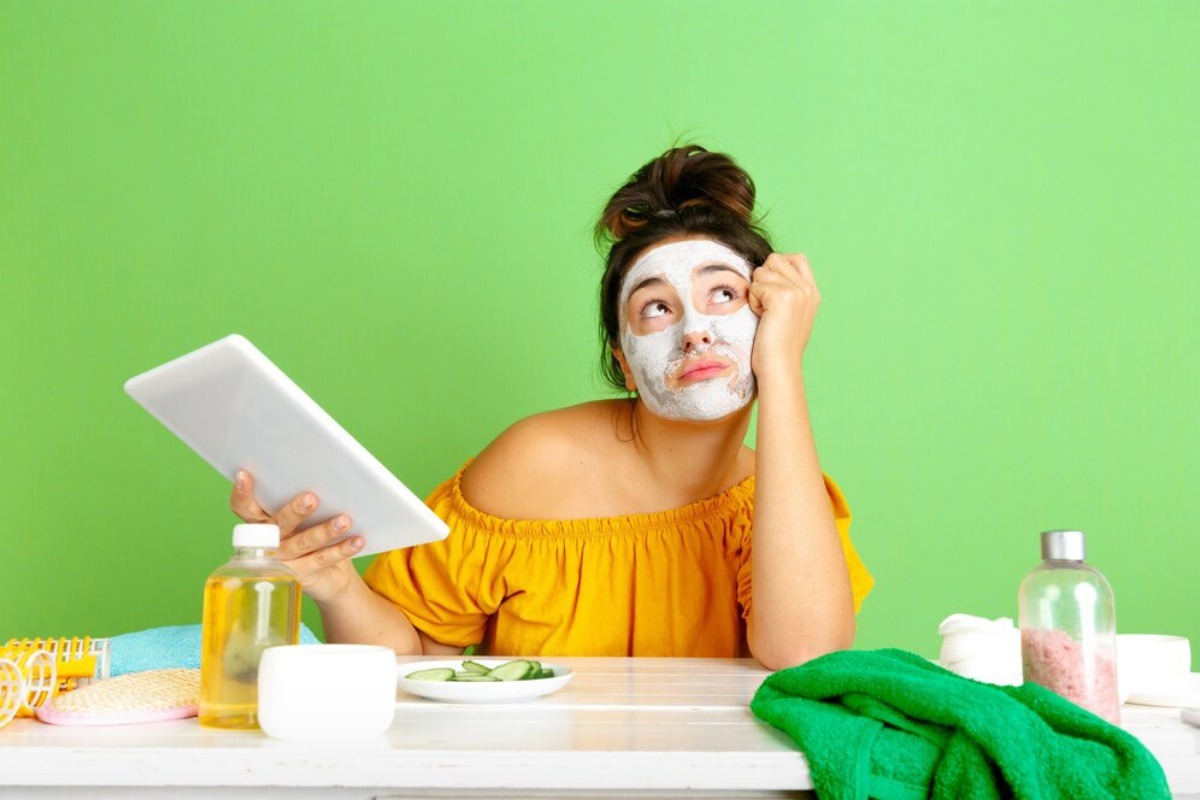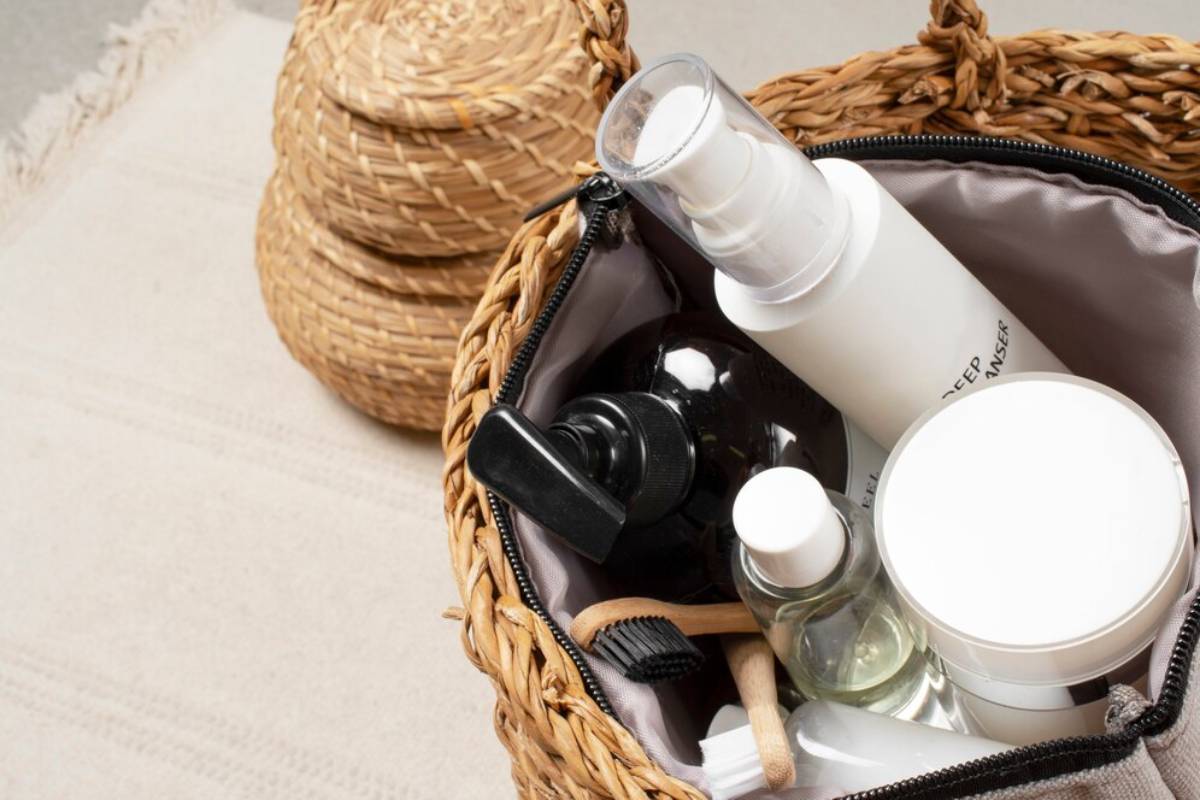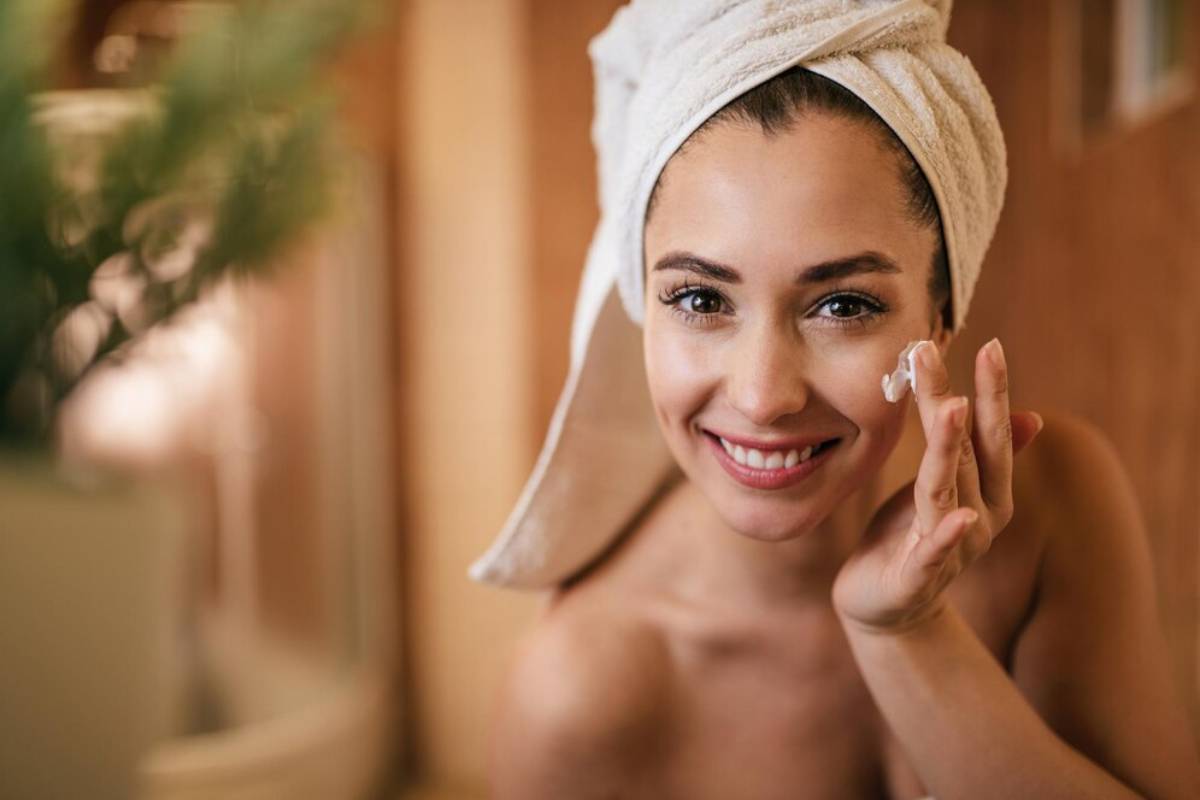
How Pollution Affects Your Skin & How to Fight It
Urban growth and industrial expansion have raised pollution levels. This harms both the environment and our skin. As the body’s largest organ, the skin is a frontline defence against pollutants. Continuous exposure to airborne toxins can harm skin health. This may cause premature ageing, dullness, and other skin issues.
This guide will show how pollution harms your skin. We’ll also share steps to protect your complexion from environmental threats.
Pro Tip:
Use an antioxidant-rich skincare routine and sunscreen daily to protect your skin from pollution-related damage and premature ageing.
Quick Guide:
- Understand the Impact: Pollution accelerates ageing, clogs pores, and causes hyperpigmentation.
- Cleanse & Exfoliate: Use a sulfate-free cleanser and mild exfoliant to remove pollutants.
- Apply Antioxidants: Vitamin C, niacinamide, and ferulic acid to combat oxidative stress.
- Hydrate & Shield: Use ceramides, hyaluronic acid, and SPF 30+ sunscreen.
- Enhance Protection: Consider air purifiers, blue light protection, and microbiome-friendly skincare.
Important:
A consistent anti-pollution skincare routine keeps your skin clear, resilient, and youthful.
The Impact of Pollution on Your Skin
1. Free Radicals and Oxidative Stress
Pollution adds harmful free radicals to the skin. These unstable molecules cause oxidative stress. This process harms the skin’s barrier. It breaks down collagen and elastin. These unstable molecules wreak havoc, causing premature ageing and dull, lacklustre skin.
As a result, fine lines, wrinkles, and sagging skin form faster.
Consequences:
- Loss of firmness and elasticity
- Development of fine lines and wrinkles
- Increased susceptibility to inflammation and irritation
2. Hyperpigmentation and Uneven Skin Tone
With long exposure to pollutants, the skin gets activated to a defence mechanism and produces more melanin. With time, this causes hyperpigmentation, dark patches and uneven skin tone. This in urban areas polluted common.
3. Clogged Pores and Acne Breakouts
Dirt, dust, and smoke are some pollutants that can fall on the skin, combine with excess oil and block pores. This becomes a hotbed for bacteria, which in turn causes acne breakouts and blackheads.
4. Skin Sensitivity and Irritation
The skin’s shield becomes compromised due to pollution. This makes it more susceptible to irritation, redness and sensitivity. If you have sensitive skin, environmental aggressors can trigger heightened reactions.
5. Accelerated Skin Ageing
As the Journal of Investigative Dermatology reports, people who live in polluted cities age more quickly. Less elasticity and more dark spots than what is found in cleaner areas.
How to Protect Your Skin from Pollution: Step-by-Step Guide

Step 1: Cleanse with Purpose
Cleansing is essential to remove dirt, pollutants, and makeup that accumulate on the skin throughout the day.
Best Practices:
- Use a gentle, sulfate-free cleanser. It removes impurities but keeps your skin’s natural oils.
- Look for formulas containing antioxidants like green tea or vitamin C to neutralise free radicals.
- Double cleanse if you wear heavy makeup or live in a highly polluted area.
Step 2: Exfoliate to Remove Pollutants
Exfoliation helps slough off dead skin cells and prevents pollutants from accumulating in pores.
Frequency and Choice:
- Use a mild exfoliant with AHAs or BHAs once or twice a week to prevent irritation.
- Avoid over-exfoliating, as it can weaken the skin barrier and lead to sensitivity.
Step 3: Apply Antioxidant-Rich Serums
Antioxidants are your best defence against free radicals caused by pollution.
Key Ingredients to Look For:
- Vitamin C: Neutralizes free radicals and brightens skin.
- Vitamin E: Protects against environmental stressors.
- Niacinamide: Strengthens the skin barrier and reduces inflammation.
- Ferulic Acid: Enhances the stability and effectiveness of other antioxidants.
Step 4: Lock in Moisture and Create a Barrier
Hydration is essential for maintaining a strong skin barrier that can withstand pollution.
Recommended Products:
- Hyaluronic Acid: Retains moisture and plumps the skin.
- Ceramides: Reinforce the skin’s natural barrier.
- Squalane: Prevents moisture loss and strengthens skin resilience.
Step 5: Shield with Broad-Spectrum Sunscreen
Sunscreen is vital. It protects your skin from UV rays and pollution.
Tips:
- Opt for a broad-spectrum sunscreen with SPF 30 or higher.
- Apply sunscreen daily, even on cloudy days, and reapply every 2 hours when exposed to sunlight.
Step 6: Detox with Weekly Face Masks
A detoxifying face mask can draw out impurities, unclog pores, and revitalise dull skin.
Best Ingredients:
- Activated Charcoal: Absorbs toxins and pollutants.
- Clay: Removes excess oil and impurities.
- Antioxidant-Infused Masks: Provide added protection against free radicals.
Advanced Tips to Enhance Skin Protection

1. Strengthen Your Skin Microbiome
The skin microbiome is a group of helpful microbes. They protect us from environmental threats.
How to Support It:
- Use skincare products containing prebiotics and probiotics to balance the skin’s microbiome.
- Avoid harsh cleansers that disrupt this delicate balance.
2. Incorporate Anti-Pollution Ingredients
Modern skincare formulations now include ingredients specifically designed to combat pollution.
Key Ingredients to Include:
- Niacinamide: Enhances barrier function and soothes inflammation.
- Squalane: Maintains hydration and prevents pollutants from penetrating the skin.
- Algae Extracts: Protect against particulate matter and heavy metals.
3. Protect Against Indoor Pollution
Indoor pollutants from cooking, heating, and cleaning can harm skin health.
Prevention Tips:
- Use an air purifier to reduce indoor pollution.
- Ensure proper ventilation in living spaces.
- Clean household surfaces regularly to minimise buildup.
Common Mistakes to Avoid in Anti-Pollution Skincare
1. Skipping Sunscreen
UV radiation exacerbates the damage caused by pollution. Not wearing sunscreen every day makes your skin more prone to faster ageing and dark spots.
2. Over-Exfoliating
Excessive exfoliation weakens the skin barrier, making it more susceptible to pollution-related damage. Stick to a moderate exfoliation routine to avoid irritation.
3. Neglecting Seasonal Changes
Your skin’s needs change with the seasons. Change your skincare routine with the humidity, temperature, and environment. This helps keep your skin well-protected.
Expert Insights: Cutting-Edge Anti-Pollution Strategies
1. Blue Light Protection
Long exposure to blue light from screens can cause oxidative stress and pigmentation.
Prevention Tips:
- Use skincare products with antioxidants that protect against blue light.
- Apply sunscreen with blue light protection if you spend long hours in front of screens.
2. Environmental Stressors Beyond Pollution
Harsh weather conditions and UV radiation amplify pollution’s effects on the skin. Antioxidants, SPF, and hydration are essential to shield against these aggressors.
FAQs About Pollution and Skin Health
1. How does pollution cause premature ageing?
Pollution causes oxidative stress. This leads to collagen breakdown, loss of elasticity, and fine lines and wrinkles.
2. Can pollution cause acne?
Yes, pollutants clog pores and mix with sebum, promoting bacterial growth and resulting in acne breakouts.
3. How often should I detox my skin?
A weekly detox using a clay or charcoal mask helps remove impurities and restore skin balance.
4. What foods help fight pollution damage?
Foods high in antioxidants, like berries, leafy greens, and nuts, fight oxidative stress. They also boost skin health.
5. Are indoor pollutants harmful to the skin?
Indoor pollutants from cooking, heating, and chemicals can make your skin dry and irritate it. Proper ventilation and air purification can mitigate these effects.
Conclusion: Protect Your Skin with Smart Skincare Choices
Pollution lurks in the nooks of modern living, but fear not! Indoor pollutants from cooking, heating, and chemicals can make your skin dry and irritate it. With a savvy skincare routine, you can be your skin’s knight in shining armour. Understanding how pollution harms your skin helps you take control. This way, you can keep your skin healthy and glowing.
Boost your defence against environmental threats by using antioxidant-rich potions. Keep a cleansing routine and apply sunscreen regularly.
Begin today by checking your skincare routine. Then, make changes to protect your skin.


